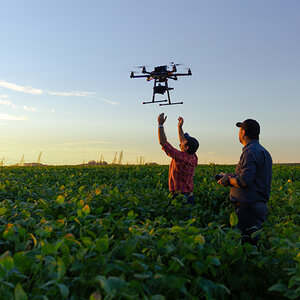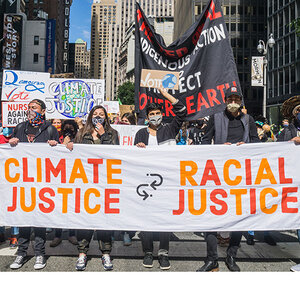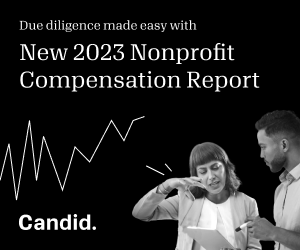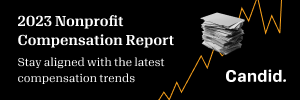Putting a systems change approach into practice: Five lessons learned
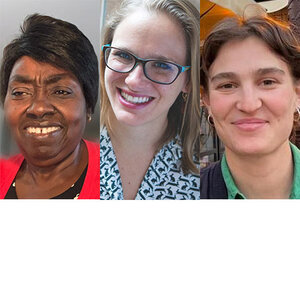
Philanthropy has reached a critical turning point. Grassroots organizers, NGOs, social impact actors, and, increasingly, funders are calling for change to #ShiftThePower to proximate leaders and communities. It is clear that we need to move beyond traditional top-down approaches to grantmaking and work toward funding practices grounded in trust, partnership, and collaboration. At Catalyst 2030, we recognized 12 funders with the Catalyst 2030 Awards for walking the talk by embracing these practices and funding proximate leaders, communities, and networks in true partnership. Many take a systems change approach—effectively confronting the root causes of problems and not just addressing the symptoms.
Many funders are eager to join this movement but hit a barrier of unanswered questions when it comes to practice. In conversation with Wellspring Philanthropic Fund (WPF), the winner of the Catalyst 2030 Donor Award in the Leader in Partnership category, we learned how they navigated—and continue to navigate—these questions. These practices are by no means new, but they provide a clear example of how funders can rise to the calls of their communities and shift their funding practices to catalyse change. Here are five key takeaways:
1. Work in true partnership.
What does it mean to work in partnership with your grantees? To start, funders can begin to shift its terminology to signal their investment in the success of their grantees. WPF refers to “grantees” as implementing partners. This means recalibrating the entry point in philanthropy and learning that funders do not have power over a “grantee” but rather work with them as equal partners who are crucial to the achievement of the funders’ mission, vision, and goals. Achieving field-wide and social change goals requires an honest, open, and non-hierarchical structure.
Rather than approaching “grantees” with predetermined ideas of how their money should be used, what success looks like, and how “impact” should be reported, WPF recognizes that the input, resources, and knowledge of the implementing partner is essential to the success of any project. In practice this may entail asking your implementing partner how they measure impact, listening to their needs, and working together to identify the best methodology for the community, people, and organizations involved. In many cases, rather than funding a specific project, WPF seeks to fund the organization with general operating support to promote both programmatic and organizational success. True partnership means working together—beyond the check—with implementing partners to meet the specific and varied needs of the community you are working to support.
2. Collaboration over competition.
What does it mean to work in collaboration with your implementing partners, and why is it important to encourage collaboration among them and their “competitors”? To this, WPF asks: Why are we competing if we all want change? What really matters is collaboration and working together; not prioritizing the funders’ approach over that of the implementing partners, or vice versa. Working in collaboration means ensuring that all relevant stakeholders have an equal seat at the table, creating space to share learnings, and listening to the community’s needs.
If we want to achieve systemic change, it’s time to recognize that this change won’t come from just one stakeholder: not solely from the investment of a funder, the NGO’s project, or the community voicing their needs. Rather, it is going to come from collaboration between all of these stakeholders and their resources to shift a system and move an agenda forward.
3. Build trust.
What does building trust look like? This is one of the most common barriers funders face when it comes to embracing trust-based approaches to philanthropy. The quick answer here is that it takes 1) engagement from both parties and 2) time.
WPF has engaged in this process actively over the course of a five-year partnership with Regional Education Learning Initiative (RELI), a network built around their implementing partners and their expressed needs. A key milestone in their trust-building process was reached early on in their partnership, during a convening organized by WPF. After months of listening to the needs and perceived solutions of their implementing partners, WPF brought together all of their implementing partners to launch and co-design RELI.
On day one of the convening, RELI members raised concerns over the plans and indicated that WPF had asked too much of them and that the design of RELI did not represent their needs. So, what did they do? They started over. They reworked the agenda for the convening and asked all RELI members to anonymously write down their concerns and questions on post-it notes. WPF staff spent the entirety of the following day working through these concerns, one by one. Reflecting on this experience, they shared that they realized they had moved too fast initially and overlooked a crucial step: taking the time to build trust. Honesty, integrity, and the willingness to be vulnerable can be transformative, particularly in a funding culture built around competition.
4. Look inward.
We understand that philanthropy needs to change, but where do we start? In their own journey, WPF started by looking inward, interrogating their own role in philanthropy and development. Rather than asking implementing partners to validate their approach, “impact,” and processes, WPF looked at its own. This new perspective highlighted the role that WPF was playing within the failed system of international development and encouraged staff to move beyond traditional, top-down relationships with “grantees.” To truly realize this shift required WPF staff to encourage their implementing partners to do the same: to step back and shift away from seeing themselves as “grantees” who report upward to a funder and to focus instead on their and their communities’ needs. Putting people at the heart of the equation enables philanthropy to be truly catalytic in accelerating change for those that the organization aims to support, not satisfying the egos and KPIs of funders.
It’s important to note that this turn inward is an ongoing process to unlearn a learned behavior that will take time for all parties to move beyond. WPF staff continue to reflect on their own practices and are committed to pushing their implementing partners to do the same, asking questions like “Does this approach suit you and your community?” “Is your leadership model representative of theirs and your needs and cultural context?” or “Are these models informed by the hierarchical and unjust system that we operate within? And if so, what model is most reflective of your collective needs and cultural heritage?”
5. Dance with complexity.
Is there a “how-to” guide we can follow? Sadly, there is not. It is time to move beyond the notion that our complex problems have an easy solution whereby funders can simply give their money, walk away, and expect a measurable impact against predetermined indicators in 12 months’ time. Social change takes time, multi-stakeholder engagement, and flexibility to adapt to ever-changing circumstances. The impact of the COVID-19 pandemic and the ongoing war in Ukraine and their unique and catastrophic impacts on economies, societies, and institutions across the globe are proof enough of this.
The truth that WPF has come to realize is that nobody has a clear guide on how to move forward. What we do have is varying degrees of experience and resources. All we can do is bring these to the table, listen deeply, and work together—across sectors and with communities—to identify potential solutions. Although we don’t have a clear “how-to” guide for you, we hope that the lessons learned by WPF on the importance of partnership, collaboration, trust, and a recognition of the broader system we operate in will inspire you to look inward and dance with the complexity that is required to advance systemic change. The sooner we realize this, along with just how colossal the issues are at hand—global health pandemics, poverty, drought, war, inflation—the sooner we can move toward a brighter and fairer future for all. We must act now. And we must act together.
Joyce Malombe is program director at Wellspring Philanthropic Fund (WPF), Stephanie Gasior is program officer for international children's education at WPF, and Mel Beeston is enabling environment coordinator at Catalyst 2030.


